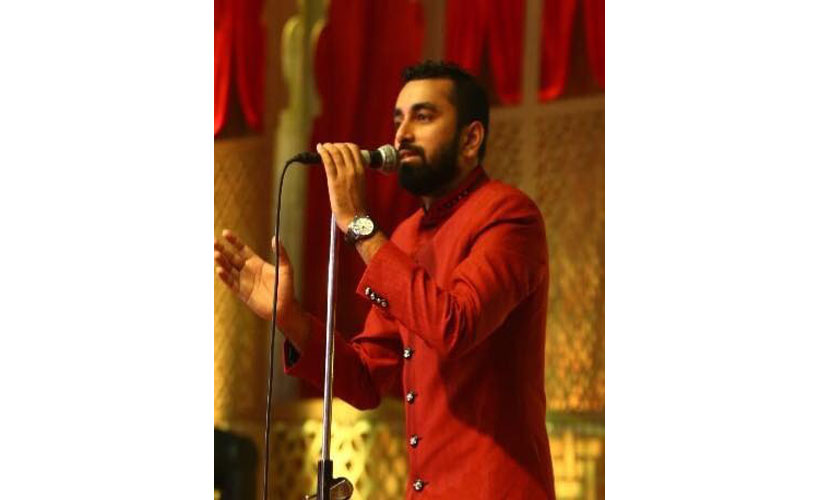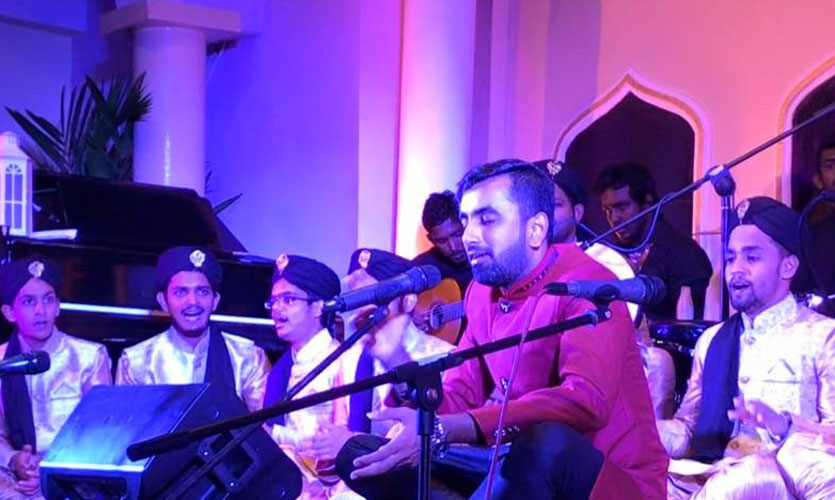Apr 02 2018.
views 135The encounter between Haadia Galely and Prof Andre was established in 2011. The following year at the invitation of Haadia, Prof Andre graciously agreed to attend the Colombo Music Festival where he left an amazing impact on participants from a number of public and private schools, where at the conclusion of the collaboration, they took away with them an experience that was rich in knowledge and experience. The association between these two individuals was further strengthened through their mutual understanding of each other’s love for music especially as it was aimed at finding how best music could be used as a means to moot ideas that could be applied for the greater good of societies.
It was soon evident to them that, based on common interests and respect of each other’s values and aspirations, that the journey they were about to embark on was going to be of great value to the Ummah that defined, is the reference to the worldwide Muslim community where a worldwide community of believers come from different backgrounds, races and cultures.
Therefore it was at this juncture that the concept for a three-phase project got underway to revolve around a common goal that has led to the founding of ‘Project Aswatuna’ with a vision to promote and sing pieces that is a representation of Songs from the Muslim World.
Project Aswatuna
‘Project Aswatuna’ was initiated in January of 2016 followed by the official launch on the 19th of August 2017 was a significant day for both HaadiaGalely and Prof André de Quadros.
About the Curator
Haadia Galely with her aesthetic sense and flair has contributed considerably to promoting the arts.This is especially noted for her dedication towards mentoring young individuals in need of support and guidance; areas she is commended for.
She has mooted and promoted noteworthy projects, for individuals and organization, therefore, initiating Project Aswatuna was no surprise. Her passion and experience has driven her to relentlessly venture into areas that she believes in, especially if it means to serve society or an individual.
Prof Andre de Quadros, a highly respected and renowned artistic director, is a conductor, ethnomusicologist, music educator, and human rights activist has conducted and undertaken research in over forty countries and is a professor of music at Boston University. He has guided the process in order to harness what is required to take this project forward successfully.
Associate Artistic Director Manoj Sujeewa, is a music educator who is a lecture attached to the University of Visual and Performing Arts; Manoj has been assigned to train the choristers who have had little or no formal training in the art of melodic deliveries. However, these past twelve months has exposed the choristers to be able to understand and appreciate the value of what it is to be ‘Sing in Harmony’
1. What is your purpose of launching Muslim Choral Ensemble to Sri Lanka?
The objective is to raise awareness, on the value and legacy that is evident in Muslim Songs from across the globe. Disconnecting from all spiritual orders helps the unbiased understanding of Muslim Songs and its significance. Most of the pieces sung, may be aligned to Qawali and Gazals or similar, also includes a wide range of pieces of praise to Allah. Therefore creating this project is that it offers a platform for the many wonderful voices found within our communities to be given the opportunity to sing traditional Islamic or Muslim music in keeping with specific values that boils down to one's personal choice.

Much as launching ‘Project Aswatuna’ was a way of introducing a fresh genre unknown to a Sri Lankan audience, it is also a vision, established to pave the way for talented singers who have no opportunity to be a part of such an undertaking. This decision is based on personal choices, will be given another shot at using the gift of their voices to inspire beyond the knowledge that could help set aside many misconceptions of how the world perceives Muslims.
2.Views on the controversies/misconceptions based on the practicing of music in Islam as a contentious issue.
Islamic songs are inspired by a wide range of musical patterns that stems from within the Muslim world which primarily is experienced through the recitation of the Qur’an, which while not, being considered ‘music’ but can undeniably, be called musical. Children at a very young age are made aware of the Adhan, (call to prayer) that on hearing and reciting it, in a rhythmic pace leaves a deep-seated imprint on our souls and has influenced our musical traditions as well as inspired many poets or is sung to music by many
The question of controversies/misconceptions is a topic they believe is best left to scholars competent to answer with confidence while their project is founded on their philosophy ‘For Love & Humanity ‘
They believe that in respecting the opinions of the various orders it helps to keep their views simple so that it revolves only around the fact that singing Muslim music contains profound emotional content, directed to a higher purpose,
Also, they believe it is pertinent that they remind themselves of what a vibrant music, culture, and arts scene the Hejazi desert was during the time of The Prophet and after it. The Muslims from Baghdad to Damascus, from Aleppo to Palestine, from Kabul to Istanbul were some of the most artistically and intellectually profound societies. Muslims have their literature, the monuments and the legacy of what a vibrant cultural melting pot these societies were, and where only in needed to open their eyes and ears to this profoundness which in itself personified the boundless nature of the wisdom and beauty inherent within all human beings.
Muslim and Islamic music is fundamentally a means of remembrance, of the limitless Peace or the Passionate Love we feel for our creator and His teachings.
Therefore our singing too invokes this profound remembrance through ‘Our Voices’

3. Different styles of sub-genres that were performed at the project launch.
Traditional Islamic music encompassing sounds and influences as diverse as Arabic Qasida, Nasheed, Qawwali Naats all collectively come from the Indian subcontinent were, sung by the group that among Muslims this depict Love and reflects on the Oneness of Allah the Prophet (PBUH) and mystic traditional Islamic music that all breathe in an ambience (like all sacred dedications) a pure and constant reminder of God’s presence that brings them back to the harmonious state from which we were all created.
4. Any future plans in mind?
Yes we do, and propose taking it a step at a time
0 Comments